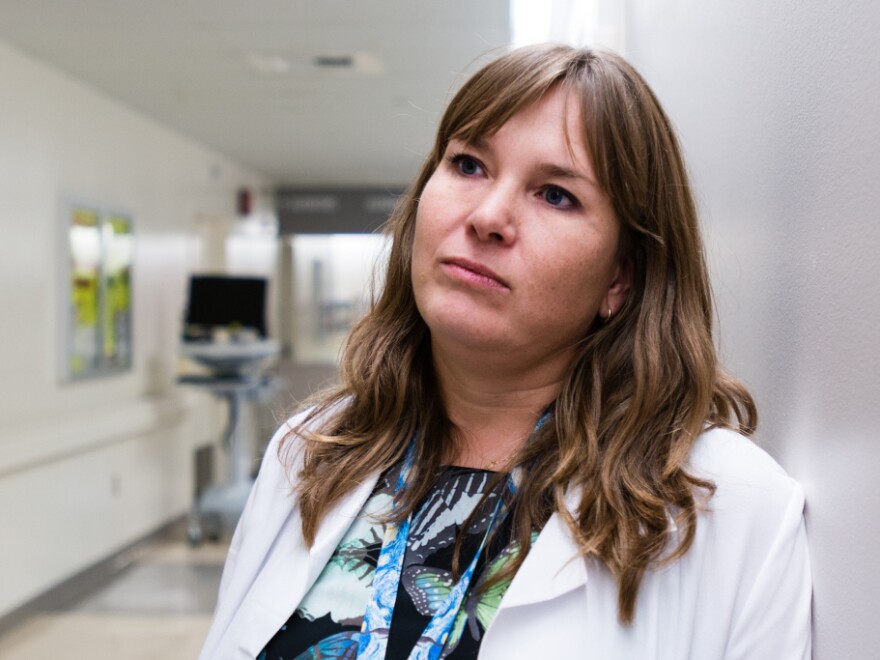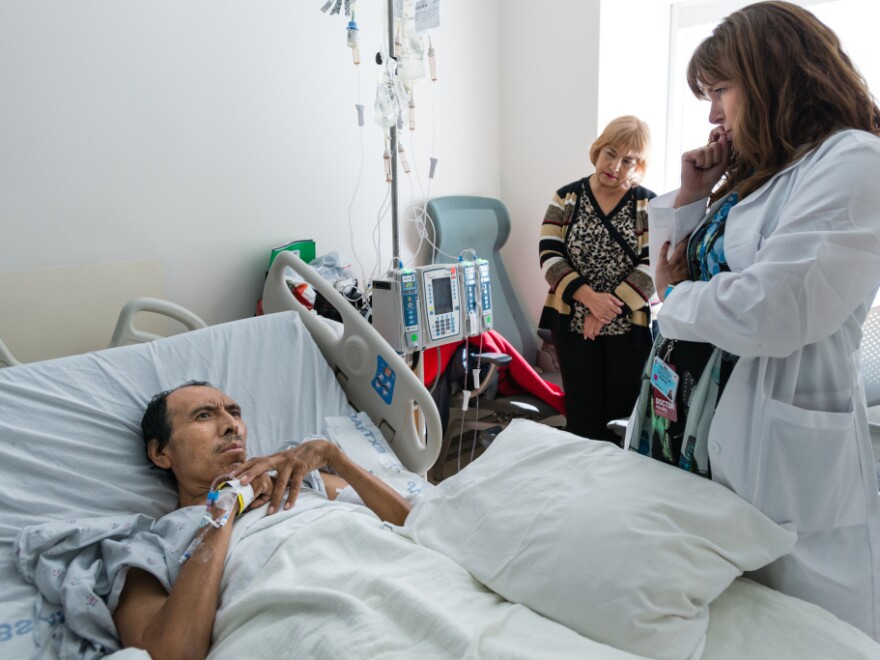When she first heard that California's new aid in-dying law was signed, Dr. Carin van Zyl was relieved to hear that assisted death would be an option for her if she ever needed it herself. But as a palliative care doctor at the University Of Southern California Keck School Of Medicine, she's worried the law might lead people to consider lethal medications over other options that may better accommodate their wishes.
"Patients feel as though their choices are between untreated suffering or physician-assisted suicide," she told NPR's Renee Montagne. "Palliative medicine, when it's applied skillfully and at the right time, often relieves most of the suffering that prompts people to ask for [death] in the first place," she says.

But palliative care, which is focused on managing symptoms and relieving pain, isn't available to everyone, van Zyl says. There are smaller hospitals that don't have palliative medicine teams, and it may be hard to get treatment even in urban areas. Van Zyl thinks more work should be done to make palliative medicine more accessible. "I worry that we make [lethal medication] available before we put the necessary effort forward," she says.
Not everyone can be helped with palliative care, van Zyl says, and some people truly would have benefited from the aid-in-dying law had it been passed earlier. "I think about those patients all the time. I do recall a patient who understood that his death would be sudden and unpredictable and likely quite painful."
He had a cancer that had spread and become intractable. A tumor developed in his neck that was swelling into both an artery and his windpipe; eventually it would connect the two. "This gentleman with very little warning might have his airways flooded with blood, and he would drown," van Zyl says. "He asked if it would be possible to shorten his life before that."
The care team was able to administer pain medication that would ease his death when it happened, which worked, van Zyl says, but he wasn't able to die in the way he wanted — at home, surrounded by his family. Aid in dying would have offered more control over his situation, van Zyl says.
Still, the reasons why people choose aid in dying can be complicated. "You'll notice in the Oregon data, many people chose this option not because of physical suffering. It was the loss of dignity, control and independence," she says. "I would imagine writing a prescription for somebody for whom palliative sedation is not an option or would not relieve intolerable physical distress. I struggle with emotional and existential requests." Times like that, van Zyl says she would rather administer palliative care.

Choosing the best course of action is a conversation that van Zyl says she'll continue to have with her patients. "Palliative medicine discussions are about learning the story of the person, helping this patient navigate choices. If [death] is an option that gets them closest to the things they hold dearest, then we will explore those things honestly."
Copyright 2021 NPR. To see more, visit https://www.npr.org. 9(MDAxODg3MTg0MDEyMTg2NTY3OTI5YTI3ZA004))



